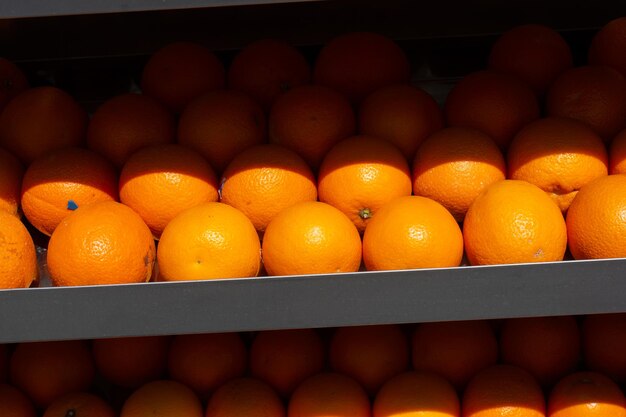How Long Can You Keep Mandarins Fresh in the Refrigerator?
When stacking your fridge with seasonal fruits, mandarins often take pride of place, serving as a fresh, juicy snack with their vibrant color and sweet flavor. But like all fresh produce, they come with a pressing question: How long do mandarins last in the refrigerator? Understanding their shelf life is key to maximizing freshness and minimizing waste. This guide will delve into the topic and provide helpful tips for your fruit storage.
The Lifespan of Fresh Mandarins
In the Refrigerator: The Best Bet for Longevity
Storing mandarins in the refrigerator is recommended if you aim for a longer shelf life. Typically, mandarins can last up to two weeks in the refrigerator before they start to lose their quality. The cool temperature slows down the rate of spoilage by inhibiting the growth of mold and bacteria, keeping the fruits fresh and crisp longer.
At Room Temperature: Quick Appeal, Quick Turnover
If you prefer your mandarins at room temperature for that luscious bite, aim to consume them within four to seven days. This duration might vary slightly depending on exact conditions, like humidity and warmth. Keeping mandarins on the counter is perfect for short-term storage where it’s easy to grab a quick, refreshing snack.
Key Factors Influencing Mandarin Shelf Life 🍊
1. Quality at Purchase
Begin by selecting the best mandarins at the store. Look for firm, smooth-skinned fruits that yield slightly to gentle pressure. Avoid fruits with soft spots, shriveled skin, or mold, as these signs indicate decreased shelf life.
2. Storage Environment
- Temperature: For optimal results, keep mandarins in the refrigerator's crisper drawer. This section maintains the right humidity levels to preserve citrus fruits without drying them out.
- Air Circulation: Ensure there’s space between the fruits for air to circulate, reducing moisture buildup that could lead to mold growth.
- Bag or No Bag?: If storing in a bag, perforated or mesh bags are ideal as they allow airflow while capturing any fallen juices.
3. Post-Purchase Care
Gently rinse mandarins in cold water before storage to remove any surface contaminants. However, make sure they are completely dry before placing them in the refrigerator, as excess moisture can encourage mold.
Comparing Storage Methods: A Quick Overview 🥇
Consider this table for an at-a-glance review of storage methods:
| Storage Method | Lifespan | Advantages | Disadvantages |
|---|---|---|---|
| Refrigerator | Up to 2 weeks | Prolonged freshness, reduced spoilage | Requires space in the fridge |
| Room Temperature | 4-7 days | Convenient access, no fridge space needed | Shorter shelf life |
Practical Tips for Extended Freshness
Inspect Regularly: Regularly check mandarins for signs of spoilage such as changes in texture or visible mold. Removing spoiled fruit promptly can help prevent others from spoiling.
Separate Storage: Keep mandarins away from fruits like apples and bananas, which emit ethylene gas that can accelerate ripening in citrus fruits.
Use Peelings: Even if some mandarins start to lose their initial freshness, their zest can be an excellent addition to recipes, offering a burst of natural citrus flavor.
Creative Ways to Use Overripe Mandarins
Not keen on throwing out past-prime mandarins? Here are some great ways they can still shine in your kitchen:
- Homemade Juices: Overripe mandarins are perfect for juicing, providing a sweet and smooth drink.
- Mandarin Syrups: Simmer the peels and pulp with sugar to create a sweet syrup suitable for cocktails or drizzling over desserts.
- Natural Cleaning Products: The zest and peel contain oils perfect for homemade cleaning solutions. Their natural scent can refresh any room.
Understanding Spoilage Signs
Recognizing when mandarins have outstayed their pantry welcome is crucial. Some key spoilage indicators include:
- Soft Spots and Bruising: Overripe mandarins tend to develop soft and mushy areas.
- Off Smells: A fermented, sour smell suggests the fruit is no longer safe for consumption.
- Changes in Color: Any mold spots or discoloration is a definite signal to discard the mandarin.
Sustainable Storage Practices ♻️
For those prioritizing sustainability, consider integrating some eco-friendly approaches:
- Composting: Mandarins past their prime can be composted, offering nutrients back to the earth for future growing seasons.
- Reusable Bags: When purchasing mandarins, opt for reusable produce bags versus single-use plastic for a more sustainable choice.
The Competitive Edge of Freshness: Market Importance
While home storage is vital, the initial life of a mandarin begins long before it reaches your shelf. From cultivation practices to their journey through the food supply chain, factors such as handling, packaging, and marketing all influence the overall freshness experienced at home.
To make a difference as a consumer, explore markets that focus on local and sustainable produce. Buying fresh, seasonal mandarins directly from local farmers reduces transit time and supports community economies.
Wrapping Up with a Juicy Insight 🍊
Ensuring that your mandarins stay fresh and enjoyable in the refrigerator for those crisp two weeks—or even longer—isn’t rocket science. It’s about paying attention to detail, from picking the plumpest fruit to perfecting placement in your fridge. Through smart decisions, like opting for local and healthy purchasing practices, and flexible uses for fruit that’s past its prime, you can relish the full experience of mandarins without fear of waste.
By listening to your fruit’s needs and signs, you ensure every slice of mandarin is as satisfying and sweet as the last. Happy snacking!

